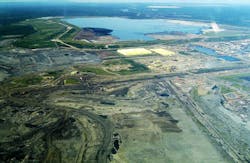Canadian researchers work on new water treatment method to cut carbon dioxide emissions
Researchers at the University of British Columbia are working on a new technology that uses carbon dioxide and wastewater from oil and gas operations to produce reusable water and extract chemicals from drilling fluids that can also be reused. The method to achieve this has already been developed but the academics will be focusing on commercializing and scaling up the technology, the university announced.
The advantage of the technology is that it can address two problems at once — it can help to reduce global carbon dioxide emissions, while at the same time it can contribute to resolution of the global water shortage problem. David Wilkinson, a professor of chemical and biological engineering and a member of the Clean Energy Research Centre, commented that so far those problems have been addressed separately but the team of researchers will now look at them in combination.
The technology is largely based on a low-energy dialysis system that can use excess carbon dioxide to desalinate industrial wastewater, resulting in water that can be reused. It also removes chemicals like carbonate salts and acids, which can further be used for various industrial applications. As an extra advantage, the technology has a lower carbon footprint than traditional desalination techniques.
The oil and gas industry could benefit a lot from the technology, as it requires significant amounts of water. In Alberta only, applying the method could save several billion liters of water and remove megatons of carbon dioxide every year, according to Wilkinson.
